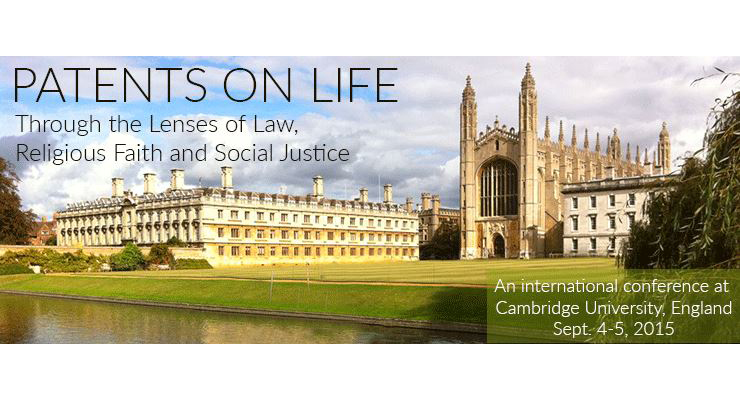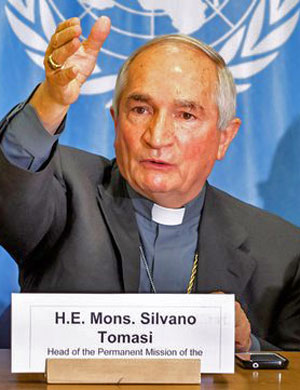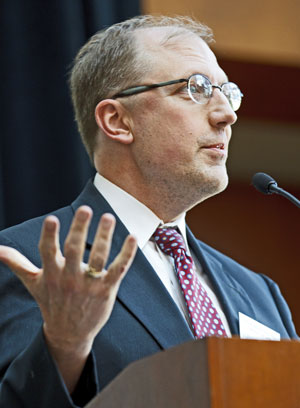“Patents on Life: Through the Lenses of Law, Religious Faith and Social Justice,” an international conference on the legal, ethical and political issues surrounding patents on living matter, will be held in Cambridge, England, Sept. 4 and 5 at St. Edmund’s College, University of Cambridge.
The conference is co-sponsored by two institutes focused on Catholic thought and social and legal questions: the Von Hügel Institute at St. Edmund’s College in England and the Terrence J. Murphy Institute for Catholic Thought, Law and Public Policy at the University of St. Thomas in Minnesota.
The conference will bring together prominent judges, scholars, government officials and leaders of Christian and non-Christian faith traditions to grapple with difficult questions raised by the explosion of genetic technology and efforts to patent human, animal and plant material.
Speakers from the United States, Europe and Israel will include judges, lawyers and scholars in the fields of patent law and intellectual property, theologians and ethics scholars, biotech industry members and church leaders. A complete list of the speakers, and information on how to register for the conference, can be found here.
Among those attending will be Archbishop Silvano Tomasi, the Holy See's permanent observer to the United Nations in Geneva; Steve Colecchi, director of the Office of International Justice and Peace for the U.S. Conference of Catholic Bishops; and the Vatican's lead officials on intellectual property issues and on trade negotiations in Geneva.
Conference co-chairs are Tom Berg, the James L. Oberstar Professor of Law and Public Policy at St. Thomas’ School of Law, and Roman Cholij, a Von Hügel Institute research associate.
“With the explosion of genetic technology and the drive to access and make use of genetic resources, the issues surrounding the patenting of living things and living material – human, animal and plant – have become tremendously complex and important, and as Pope Francis has shown, Catholic social thought can speak to these global debates,” Berg said.
The conference aims to address a number of questions: What is the line between patentable scientific creations and unpatentable features of nature? What effects do patents on human genes, or on genetically modified crops, have on people in poverty or in developing countries? What is a fair allocation of indigenous genetic resources among traditional peoples and multinational corporations? What role should moral objections to particular technologies play in determining whether they can be patented? And what do religious insights have to offer on these legal, moral, and social questions?
The Murphy Institute is a collaboration between St. Thomas’ School of Law and Center for Catholic Studies. The Von Hügel Institute is an interdisciplinary research institution dedicated to the study of the relationship between Christianity and society. It conducts research on political, social, legal and economic issues from the perspective of Catholic social teaching.









